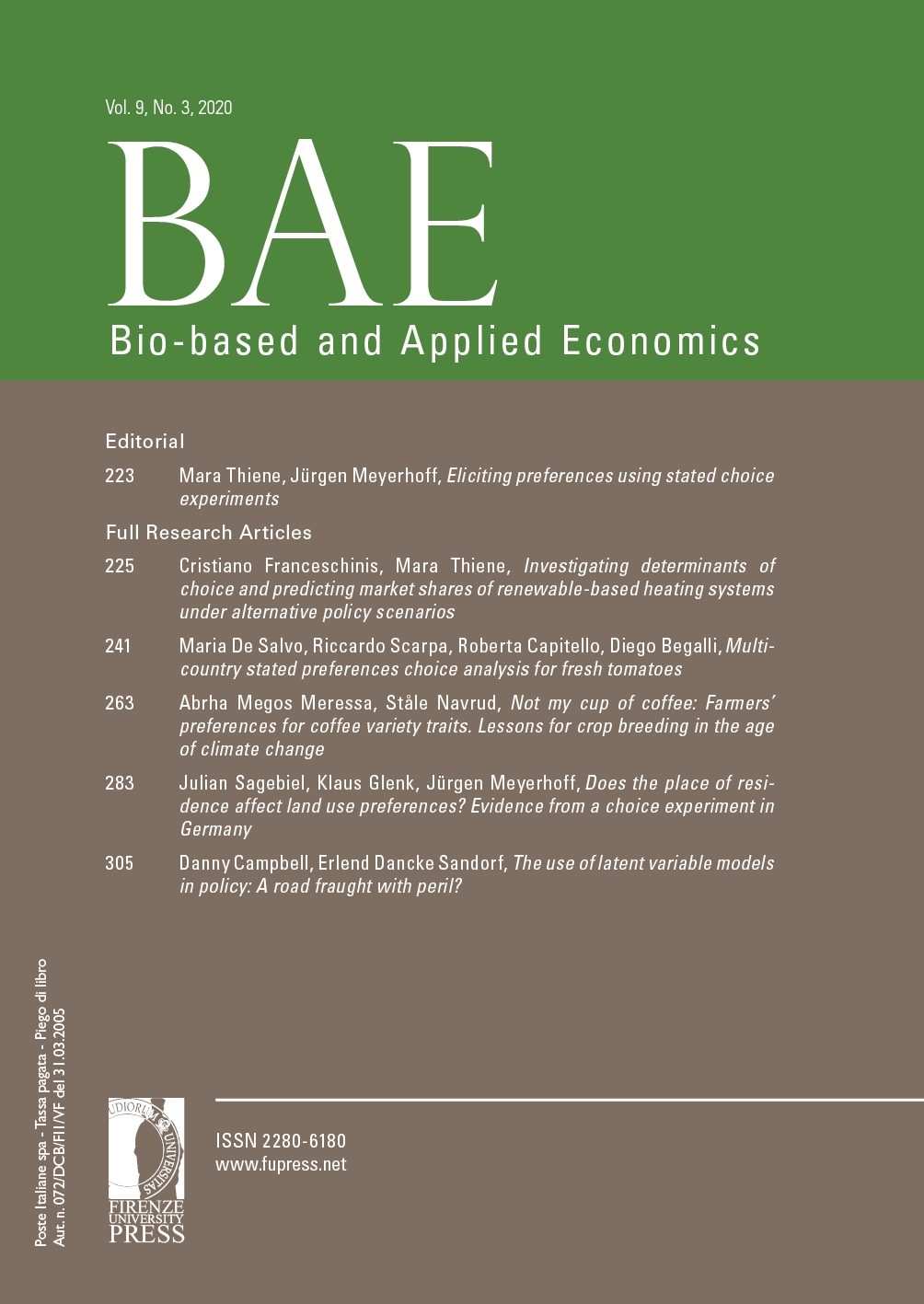Investigating determinants of choice and predicting market shares of renewable-based heating systems under alternative policy scenarios
Published 2020-12-14
Keywords
- Ambient heating systems choice,
- Latent class Model,
- Market shares,
- Willingness to pay
How to Cite
Abstract
Fostering the uptake of heating technologies based on renewable resources is an important part of the EU energy policy. Yet, despite efforts to promote their diffusion, heating systems based on fossil fuels are still predominant. In order to better tailor energy policies to citizens preferences, it is crucial to collect accurate information on their determinants of heating choices. At this purpose, we adopted a choice experiment and a latent class model to analyze preferences of householders in the Veneto region (North-East Italy) for different heating systems and their key features. We focused on three devices based on biomass and three on fossil fuels, and accounted for technical, economic and environmental characteristics of such systems. Model estimates highlight the presence of substantial preference heterogeneity among the population, which can be partially explained by citizens socio-demographics. We also use model outputs to simulate market shares for heating systems under alternative policy scenarios. Results provide interesting suggestions to inform the design of policies aimed at fostering the adoption of biomass-based heating systems.






